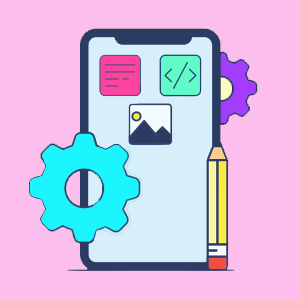 APIs (Application Programming Interfaces) are crucial in developing iPhone applications. They enable developers to enhance functionality, access device features, and integrate with various services.
APIs (Application Programming Interfaces) are crucial in developing iPhone applications. They enable developers to enhance functionality, access device features, and integrate with various services.
iPhones are massively popular worldwide. Understanding the role of APIs in iPhone app development is essential, seeing the constantly growing user count and the increasing demand for innovative mobile applications.
If you’re keen to learn more about this, keep reading. This blog offers a glimpse at the benefits and challenges of utilizing APIs in iPhone app development, providing valuable insights for developers and businesses.
APIs in iPhone App Development and Their Benefits
Here’s how APIs help in iPhone app development:
Enhancing Functionality and User Experience
APIs enable developers to extend the capabilities of their iPhone apps by incorporating additional features and functionalities. For example, they can integrate social media sharing, location-based services, payment gateways, and multimedia capabilities into an app, enhancing user experience and engagement.
Rapid Development and Reduced Coding Effort
APIs offer pre-built functionality and libraries that can be easily integrated into an iPhone app, reducing the need for developers to reinvent the wheel. The app development process speeds up as a result, giving developers the time to focus on core features and deliver it to the market faster.
Accessing Device Features and Services
Developers can use the iPhone’s various hardware and software features using APIs, such as the camera, accelerometer, GPS, and microphone. APIs give them the ability to leverage the device’s full potential and create rich, immersive user experiences.
Improved App Performance and Stability
Developers can leverage API providers’ expertise and optimization efforts by relying on APIs for complex functionalities. This can result in improved app performance and stability since APIs are often designed and tested to handle specific tasks efficiently. Companies offering iOS app development services can offload resource-intensive processes to well-optimized APIs, ensuring smooth and responsive app performance.
Integration with Third-Party Services
APIs enable seamless integration with third-party services, such as social media platforms, payment gateways, cloud storage, and analytics tools. This integration enhances the app’s capabilities and enables users to interact with familiar services, increasing user satisfaction and engagement.
Cost and Time Savings
Utilizing APIs during development can lead to high app development cost and time savings. Instead of building every feature from scratch, developers can leverage existing APIs to integrate desired functionalities quickly. This eliminates the need for extensive coding, reducing development time and costs of hiring additional resources.
Seamless Updates and Maintenance
Developers can benefit from seamless updates and maintenance when they use APIs. Maintaining and updating APIs falls under the responsibilities of the API providers. They have to maintain compatibility with new operating system versions, and address security vulnerabilities. Developers can focus on their core app functionalities without worrying about keeping up with the latest device changes.
Challenges in Utilizing APIs in iPhone App Development
API Compatibility and Versioning Issues
APIs may have different versions with varying functionalities and syntax. Ensuring compatibility between an app and the API version it relies on can be challenging, especially when dealing with frequent updates or when integrating multiple APIs. Therefore, developers must carefully manage API dependencies and handle versioning issues to avoid compatibility conflicts.
Security Concerns and Data Privacy
Integrating external APIs introduces potential security risks and data privacy concerns. Developers will have to carefully assess the security measures implemented by API providers and ensure they align with the app’s security requirements. Proper authentication, data encryption, and secure transmission protocols should be implemented to protect user data and maintain user trust.d
Dependency on External Services and Updates
When an app relies heavily on third-party APIs, its functionality becomes dependent on the availability and reliability of those services. If an API provider experiences downtime or discontinues its services, it can impact the app’s functionality. Every iPhone app development company must consider fallback mechanisms and alternative solutions to mitigate the risks associated with external dependencies.
Conclusion
APIs are beneficial in many ways. They play a vital role in iPhone app development, empowering developers to enhance app functionality, integrate with external services, and deliver better user experiences.
By leveraging APIs, not only will you get your app completed faster, but it will also work better and make several services available to users. However, challenges such as compatibility issues, security concerns, and external dependencies must be carefully managed.
Developers can harness the power of APIs effectively and create innovative and successful iPhone applications by following best practices and staying updated with advancements in API technology.
